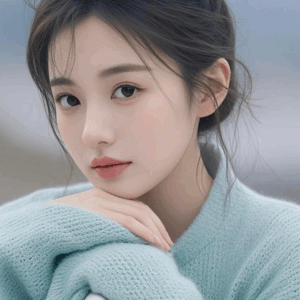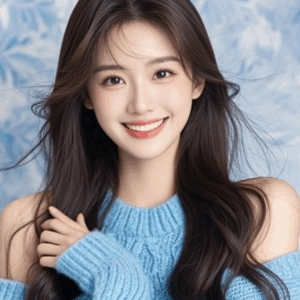Starting with From Tokyo to Paris: AI Women Who Redefine Global Beauty, this introductory paragraph aims to captivate readers and provide a glimpse of the fascinating topic at hand.
Following this, we delve into the details of the innovative AI technologies shaping the beauty industry and the ethical considerations surrounding AI-driven beauty standards.
Background of AI Women in the Beauty Industry

AI technology in the beauty industry has revolutionized the way products are developed, marketed, and personalized for consumers. With the use of artificial intelligence, companies can analyze data to understand consumer preferences, create personalized recommendations, and even develop new products based on trends and patterns.Women leading AI initiatives in the beauty industry bring a unique perspective and understanding of consumer needs and desires.
Their leadership in implementing AI technology allows for a more inclusive and diverse range of beauty products and services that cater to a wider audience.AI is transforming the global beauty landscape by enabling brands to create more personalized experiences for consumers.
From virtual try-on tools to personalized skincare recommendations, AI technology is making beauty more accessible, inclusive, and innovative than ever before.
Significance of Women Leading AI Initiatives in Beauty
Women leading AI initiatives in the beauty industry bring a deep understanding of consumer needs and preferences, allowing for more personalized and inclusive products and services. Their leadership helps drive innovation and creativity in the development of AI-driven beauty solutions.
Impact of AI on Global Beauty Landscape
AI technology is reshaping the global beauty landscape by offering personalized recommendations, virtual try-on experiences, and more accurate product matches for consumers. This technology is enhancing the overall customer experience, driving sales, and fostering brand loyalty in the beauty industry.
From Tokyo to Paris: Diverse Perspectives in Beauty Standards
In Tokyo and Paris, beauty standards are influenced by cultural traditions, historical norms, and societal expectations. However, these two cities have distinct approaches to beauty that reflect their unique values and perspectives.
Comparing Beauty Standards in Tokyo and Paris
- In Tokyo, beauty is often associated with a youthful and cute aesthetic, known as "kawaii." Women in Tokyo may focus on achieving flawless skin, large eyes, and a petite figure.
- In contrast, Parisian beauty is often characterized by a more natural and effortless look. French women embrace their imperfections and focus on enhancing their individual features.
- While Tokyo beauty standards prioritize conformity and perfection, Parisian beauty values self-expression and authenticity.
Reshaping Beauty Norms with AI
- AI technology is revolutionizing the beauty industry in both Tokyo and Paris by offering personalized skincare recommendations, virtual makeup try-ons, and customized beauty products.
- AI algorithms can analyze skin types, facial features, and preferences to provide tailored beauty solutions that cater to diverse needs and preferences.
- By leveraging AI, beauty brands can promote inclusivity and diversity by showcasing a wide range of skin tones, ethnicities, and beauty ideals.
Promoting Inclusivity and Diversity with AI
- AI-powered beauty platforms can help challenge traditional beauty standards by celebrating unique characteristics and promoting a more inclusive definition of beauty
.
- By embracing AI technology, both Tokyo and Paris can create a more diverse and representative beauty landscape that resonates with a wider audience.
- AI-driven innovations in beauty have the potential to empower individuals to express themselves authentically and embrace their own version of beauty without conforming to societal norms.
Innovative AI Beauty Technologies
AI technologies have been making significant strides in the beauty industry, revolutionizing the way products are developed and personalized for consumers. By leveraging advanced algorithms and machine learning, AI is transforming skincare, makeup, and haircare industries, providing tailored solutions to meet the diverse needs of individuals.
Personalized Skincare Solutions
AI-powered skincare tools analyze individual skin types, concerns, and environmental factors to recommend personalized products and routines. By collecting data on skin conditions and preferences, AI algorithms can suggest the most effective ingredients and treatments for optimal results.
Virtual Makeup Try-Ons
AI technology enables virtual makeup try-on experiences, allowing consumers to experiment with different cosmetic products and looks before making a purchase. Virtual beauty apps use facial recognition software to simulate how makeup products would appear on a user's face, enhancing the shopping experience and increasing confidence in product selection.
Smart Haircare Devices
AI-powered haircare devices use data analytics to assess hair health, texture, and styling preferences, offering customized recommendations for shampoos, conditioners, and styling products. These smart devices can also track the effectiveness of hair treatments over time, helping users achieve their desired hair goals.
Predictive Beauty Analytics
AI-driven predictive analytics predict future beauty trends based on consumer behavior, social media engagement, and market data. By analyzing vast amounts of information, AI algorithms can forecast upcoming trends in skincare, makeup, and haircare, enabling brands to stay ahead of the curve and innovate their product offerings.
Ethical Considerations in AI-Driven Beauty
As AI technologies continue to revolutionize the beauty industry, it is crucial to address the ethical implications that come with AI algorithms shaping beauty standards. Transparency and accountability are key factors in ensuring that AI beauty technologies promote ethical practices and avoid perpetuating harmful stereotypes.
Importance of Transparency and Accountability
Transparency in AI algorithms used for beauty applications is essential to ensure that the decision-making process is clear and unbiased. It is important for users to understand how these algorithms work and the data they are based on. Additionally, accountability mechanisms should be in place to address any potential biases or discrimination that may arise from these technologies.
Leveraging AI for Ethical Beauty Practices
AI can be leveraged to promote ethical beauty practices by prioritizing diversity and inclusivity in beauty standards. By utilizing AI technologies to celebrate a wide range of beauty ideals and representations, the industry can move towards a more inclusive and empowering future.
Additionally, AI can help identify and eliminate biases in beauty products and services, ensuring that they cater to a diverse global audience.
Closing Notes

Concluding our discussion on From Tokyo to Paris: AI Women Who Redefine Global Beauty, we summarize the key points and insights shared throughout, leaving readers with a lasting impression of the significance of AI in redefining global beauty standards.
User Queries
How is AI technology impacting the beauty industry?
AI technology is revolutionizing the beauty industry by personalizing beauty solutions, transforming global beauty standards, and driving innovation in beauty products.
What are the ethical considerations associated with AI-driven beauty standards?
Ethical considerations include transparency in AI algorithms, accountability in beauty technologies, and leveraging AI to promote ethical beauty practices.
 AI technology in the beauty industry has revolutionized the way products are developed, marketed, and personalized for consumers. With the use of artificial intelligence, companies can analyze data to understand consumer preferences, create personalized recommendations, and even develop new products based on trends and patterns.Women leading AI initiatives in the beauty industry bring a unique perspective and understanding of consumer needs and desires.
Their leadership in implementing AI technology allows for a more inclusive and diverse range of beauty products and services that cater to a wider audience.AI is transforming the global beauty landscape by enabling brands to create more personalized experiences for consumers.
From virtual try-on tools to personalized skincare recommendations, AI technology is making beauty more accessible, inclusive, and innovative than ever before.
AI technology in the beauty industry has revolutionized the way products are developed, marketed, and personalized for consumers. With the use of artificial intelligence, companies can analyze data to understand consumer preferences, create personalized recommendations, and even develop new products based on trends and patterns.Women leading AI initiatives in the beauty industry bring a unique perspective and understanding of consumer needs and desires.
Their leadership in implementing AI technology allows for a more inclusive and diverse range of beauty products and services that cater to a wider audience.AI is transforming the global beauty landscape by enabling brands to create more personalized experiences for consumers.
From virtual try-on tools to personalized skincare recommendations, AI technology is making beauty more accessible, inclusive, and innovative than ever before.
 Concluding our discussion on From Tokyo to Paris: AI Women Who Redefine Global Beauty, we summarize the key points and insights shared throughout, leaving readers with a lasting impression of the significance of AI in redefining global beauty standards.
Concluding our discussion on From Tokyo to Paris: AI Women Who Redefine Global Beauty, we summarize the key points and insights shared throughout, leaving readers with a lasting impression of the significance of AI in redefining global beauty standards.











